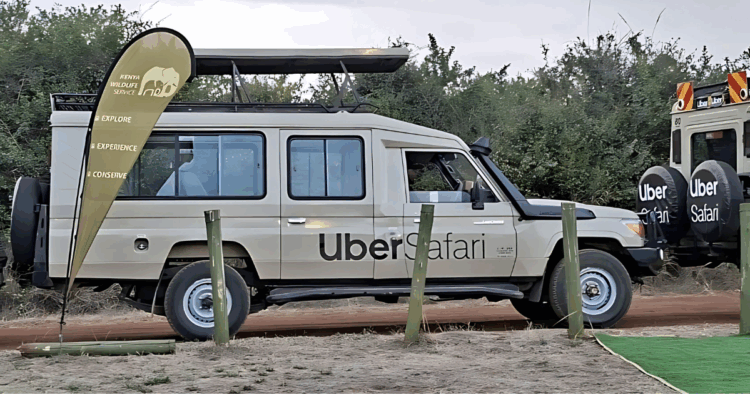Uber Safari: A Decade in the Making
In September 2025, Uber Kenya unveiled Uber Safari, a first-of-its-kind feature allowing users to book guided wildlife tours in Nairobi National Park directly through the Uber app. But this isn’t just a product launch—it’s a strategic inflection point. A decade after entering Kenya, Uber is now positioning itself as a tourism enabler, blending mobility tech with national heritage.
Uber’s Kenyan Timeline
- May 2015: Uber launches in Nairobi, its first East African city.
- 2016–2018: Expansion to Mombasa and Kisumu; Uber Eats enters the market.
- 2020–2022: Uber Boda and Uber ChapChap gain traction amid rising demand for affordable mobility.
- 2023: Uber contributes KES 14.1 billion to Kenya’s economy.
- 2024: Uber facilitates KES 2.7 billion in tourism-related value.
- 2025: Uber Safari debuts in partnership with Kenya Wildlife Services, Ministry of Tourism, and vetted tour operators.
Uber Safari vs Traditional Safari Operators
Here’s a verified comparison chart your social groupings, business team, or clique of corporate business friends can use to make informed decisions:
| Feature | Uber Safari | Traditional Operators |
| Day Safari (3 hrs) | KES 25,000 per group (up to 7 pax) | KES 12,000–18,000 per person (shared) |
| Night Safari (3 hrs) | KES 40,000 per group (up to 5 pax) | Rarely offered; custom pricing (KES 20,000+) |
| Vehicle Type | Licensed Land Cruiser via Uber Reserve | Safari van or Land Cruiser (varies) |
| Guide Included | Yes (licensed, vetted) | Yes (often KWS-certified) |
| Booking Method | Uber app (2–5 days advance) | Website, phone, WhatsApp, or agents |
| Park Entry Fee (EA Citizen) | Not included; paid separately to KWS | Usually bundled or paid separately |
| Best For | Private groups, families, corporate teams | Solo travelers, budget tourists |
Sources: assorted, verified.
What Makes Uber Safari Different?
Uber doesn’t own safari vehicles. Instead, it opens its platform to licensed tour operators, offering 3-hour guided experiences via Uber Reserve. This model:
- Democratizes access to wildlife experiences
- Boosts local businesses by creating new income streams
- Streamlines logistics—no haggling, no fragmented booking
It’s a tech-first approach to tourism, designed for convenience, trust, and scalability.
Thought Leadership Angle
Uber Safari isn’t just a feature—it’s a signal. That tech platforms can localize meaningfully, unlock new verticals, and shape national industries. For Kenya, it serves as a blueprint for platform-powered tourism. For JuaTech Africa, it’s a call to decode, demystify, and amplify such shifts—where tech meets tradition, and disruption meets destination.
This launch also invites more profound questions:
- Could Bolt or Little Cab follow suit?
- Will Uber expand to Maasai Mara or Tsavo?
- How will local tour operators adapt to platformization?
Our Wrap | Uber Safaris
Uber Safari is a milestone in Kenya’s tech-tourism convergence. It blends global infrastructure with local relevance, and it’s redefining what it means to explore Nairobi. For buyers, it’s a new way to safari. For JuaTech Africa, it’s a new story to tell—with clarity, credibility, and strategic edge.
Also read on the Safaricom Deep Dive, our exclusive episodic unravelling of Kenya’s telco giant.

















